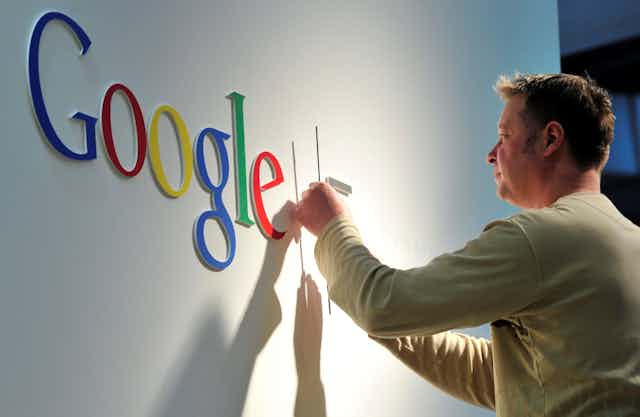Google has won its long-running legal battle with the Australian Competition and Consumer Commission (ACCC), after the High Court today overturned a ruling that the company had engaged in “misleading and deceptive conduct” with regards to sponsored links.
The case dates back to 2006 and 2007, a period in which it was alleged that Google published sponsored links using keywords for Honda, Harvey World Travel, Just 4X4 magazine and Alpha Dog Training that, in turn, led the search engine’s users to rival firms.
But the bottom line – as of today – seems unequivocal:
Google did not create the sponsored links that it published or displayed. Ordinary and reasonable users of the Google search engine would have understood that the representations conveyed by the sponsored links were those of the advertisers, and would not have concluded that Google adopted or endorsed the representations. Accordingly, Google did not engage in conduct that was misleading or deceptive.
So why the stoush?
Consumer protection law
Put simply, Australian consumer protection law aims to protect people from deception and serious injury but does not save everyone from their own stupidity or laziness. In essence, it respects individual autonomy.
That means consumers are expected to take responsibility for their own actions; they are free to make their own decisions; they won’t be rescued from every bad choice or wrapped in cotton wool.
But governments will intervene where there has been deception or negligence by manufacturers, distributors and service providers (including GooGle). Penalties for such corporate misbehaviour can be severe, particularly where there has been serious injury.
Legal background
The High Court decision in favour of Google reflects the philosophy outlined above of “individual autonomy” and is consistent with a range of decisions by the Court regarding the internet. One such decision was that made in the iiNet case last year, where it was found the internet service provider wasn’t liable for misbehaviour by its customers.
ACCC representatives had taken Google to the Federal Court in September 2011 under Section 52 of the Trade Practices Act (1974), arguing that Google had engaged in “misleading or deceptive conduct” by displaying certain search results.
In practice, Australian viewers of Google searches between 2005 and 2008 saw two types of search results on the same page. One list of results was from “organic search” (links to online content ranked in order of relevance to terms used by the viewer in starting the search).
That ranking reflected Google’s search algorithms – essentially a citation ranking, independent of any payment received by Google.

The same page featured “sponsored links”: content to which viewers are pointed because the content owner has paid Google for the privilege. These are not small potatoes: sponsored links equate to billions in revenue for Google; they are akin to the advertisements that keep free-to-air broadcasters in business.
Many sponsored links point to content that originates outside Australia, whether that be from Russia, the US and India. Some of that content was deceptive, involving financial scams, bogus medications, fake products or retailers who disregard promises.
It is the sort of content that the ACCC often successfully stamps out in Australia and that its overseas counterparts sometimes take action against in their jurisdictions.
Key decision points
The ACCC recognised that Google was not creating and operating the sites featuring the content in question. But it argued that, by displaying search results pointing to those sites, Google was breaching consumer protection law.
Importantly, the ACCC argued that some consumers would mistake “organic” and “sponsored” search results. That claim was plausible as some people were unfamiliar with the way results were displayed.
In 2011, the Federal Court initially found in favour of Google, concluding that results sometimes pointed to content that breached Australian law but that Google wasn’t responsible for that content.
“Ordinary and reasonable” people, it was thought, would recognise that sponsored links were advertisements. They would not have thought that Google endorses everything in its search results (in the same way that broadcasters don’t do quality testing for every advertisement).
In April last year, the ACCC successfully appealed to the Full Federal Court, which unanimously found that the specifics of sponsored linking meant Google breached the Act – which is to say, the search engine rather than just the sites already mentioned involved misleading or deceptive conduct.
Google appealed to the High Court in June last year, which today has unanimously endorsed the initial decision.
The Court considers that Google did not create the problematical sites identified through the sponsored links. Google’s “ordinary and reasonable” users would have understood that claims on those sites were by advertisers and not endorsed by Google.
And so, six years after the case began, what have we learned? Yes, that’s right everybody – digital literacy is required online.
Further reading:
Google triumph over ACCC seen as a loss for consumers

